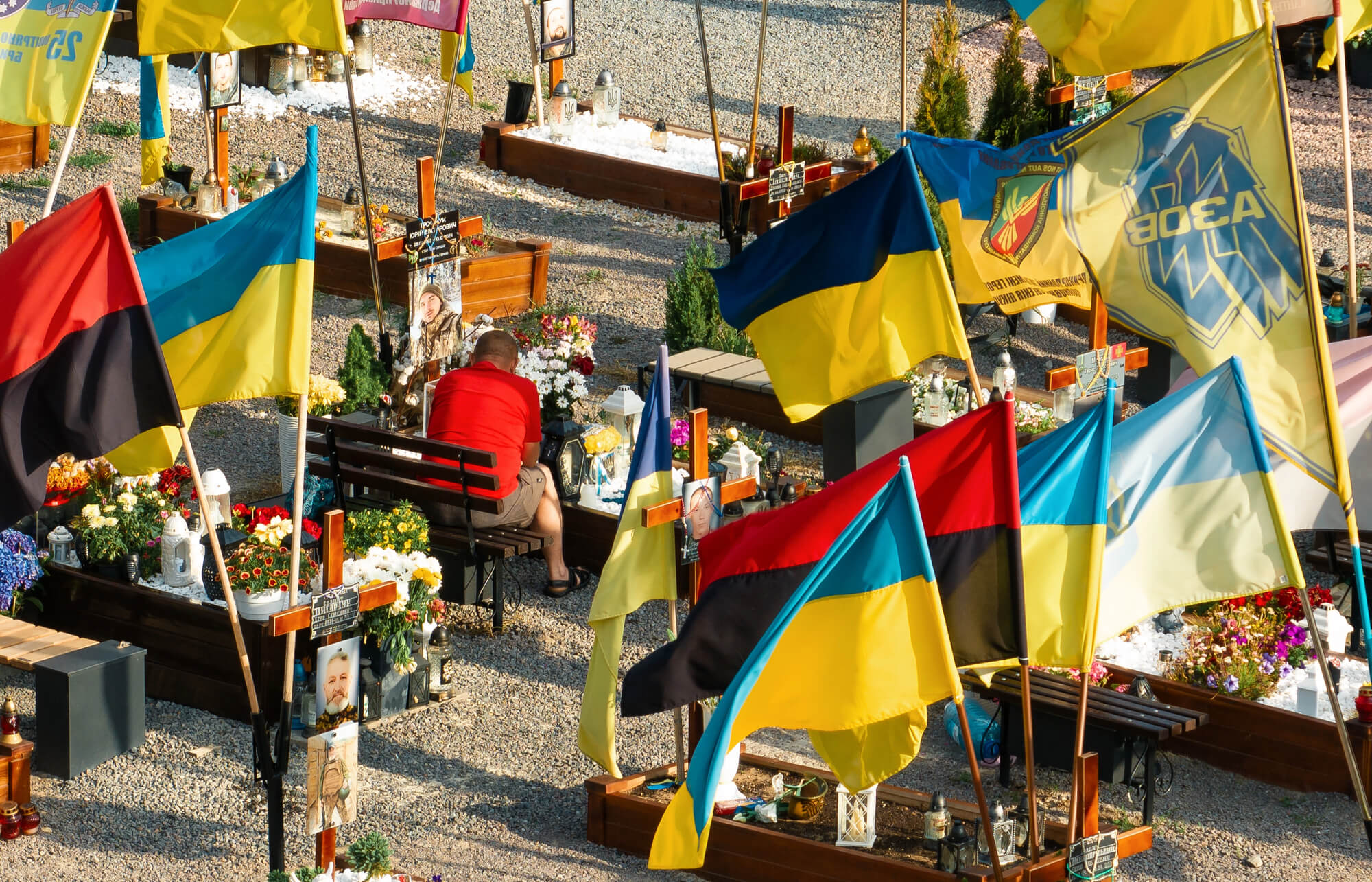You might have heard about the game of Reversi. There is a board with two-colored disks. I have a yellow-blue one. If your yellow disk is surrounded by blue ones, you have to turn your disk over so that it becomes blue as well. A disk mimics the surrounding color. When you are surrounded, it’s impossible to remain yourself, there is no way out. You need to stand on your head and pretend that you are the same color as the surrounding disks. The winner is the person whose color occupies the entire board. You cannot file for a draw. Only one color should remain, although the battle can be long and furious.
Hopelessness and ruthlessness of the game reminds of the process of language colonization when the conditions created make it impossible to preserve one’s own color. However, the difference between game and life is substantial: a disk doesn’t try to prove that it turned over voluntarily. And that it wanted to turn over. And that it values its (new) color. And that generally speaking it was “always like that”.
Empires perceive language as a mark of their territory. There is a good reason for Putin to actively equalize “russian-speakers” with “russians” when he has been talking to world leaders since March 2014. Russian-language space, in his definition, is automatically Russian – it’s “their” disks, which they turned upside down. Allowing Ukrainians to speak their own language again is considered a revanche that Russia cannot allow to happen. Russia is focusing on the “ours” theme for a reason – as soon as they dissolved the chauvinist movement “Nashi” (ours) in 2013, a “Krymnash” (Crimea is ours) movement appeared. And “ours” has always been defined through language – whether russian-speaking Ukrainians wanted it or not, whether they referred to themselves as “theirs” or not.
Russian language was not the reason for the Russian attack on Ukraine neither in 2014 nor in 2022. The variants of this idea are expressed by both sides, but are nevertheless wrong. Russia claims that the alleged lack of language freedom in Ukraine forced Russia to protect it with arms. On the other side, Ukrainians sometimes claim that without russian-speakers in Ukraine, Russia would have no one to “protect”. This second idea is very tempting, because it is likely true to some degree: because in that case Russia would have to invent another pretext for a war. However, the real reason would remain the same.
In today’s discussions between “language matters” and “language has nothing to do with the war”, most common feelings on both sides are anger and powerlessness. Even those who understand the nature of colonialism have difficulties tolerating Russian despite understanding that most russian-speaking Ukrainians are victims of Russian chauvinism. The chauvinism that started long before Putin.
It is easier to build a common space when all traumas are talked through and acknowledged. It is more complicated when a victim insists that their speaking Russian is a free choice of a free person. As if you are trying to give a person back what she lost, while she stares at something taken from her and insists “this is not mine”. This is a desire not to be a victim, even after a generation, unwillingness to acknowledge that something bad was done to you or your parents, this old longing to cover the skeletons in the wardrobe and imagine that everything is just fine and you, language fanatics, are just trying to scratch open the long-healed wounds.
In reality though, for Ukrainians speaking Russian was never a conscious choice of a free person. This was always a choice of someone held behind and humiliated. Switching to Russian and renouncing Ukrainian in the USSR gave a hope for a better life, an opportunity for themselves or at least their children to ascend to the dominant class. This was a hope for a relative freedom of career and well-being. A deal with a devil: give me your soul, become “ours” for an opportunity to become a full-fledged citizen.
When discussing russification, we most often mention multiple prohibitions of Ukrainian language or shooting of those who dared to stand up, but we rarely talk about this deal with a devil, which in fact is much viler and bears much longer lasting consequences. Viler because the signature under this deal is obtained gradually and seemingly voluntarily, although linguistic studies use a notion of forced language use, when otherwise a state deprives a citizen of a number of opportunities.
Since the late 1930s, the USSR picked up the program of Russian national-bolshevism. This happened after Stalin’s “Ukrainization” which homo sovieticus so often accentuate in their discussions. They stood on the shoulders of the Ukrainian nation, destroyed its basis and then revealed their chauvinistic cards. The idea about internationalism and cultural diversity remained on paper and in slogans, while the Soviet Union, as Trotrsky forecasted in 1936, went on the path of a national project with Russians as the title nation and all others colonized and suppressed. The Russian language became the only path to full-fledged citizenship. Local languages were not considered of any value and remained mostly the amusing attributes of the regularly held folk concerts.
Being a Ukrainian speaker in the USSR meant automatically being a member of a “suspicious” (as defined by Stalin) class of peasants and petty bourgeoisie rather than being a member of a basis of the Soviet state – proletariat. Being a non-russian speaker meant inability to be part of the “Russian people”, “a leader and creator of the revolution”. It also meant inability to attach oneself to the “greatest” literature and culture discussed at all levels – from generalissimus at a party congress to a foreword in an ABC book. Being a non-russian speaker implied lower status at work, obedience in the army and at factories where higher positions were occupied by invited representatives of the titular nation; it implied the understanding that you cannot provide complete education to your children in your nativle language and that if they are non-russian-speakers, they cannot hope for a success in life.
After an armed occupation, after mass repressions, after the famine genocide of villagers with their connection to the land and language this deal was not aggressive, therefore viler. Language humiliation of non-russian speakers can be proven by some statistics: e.g., by the fact that of all ethnic Russians of USSR, including those who lived in all the republic, less than 1% could speak other languages – thus, visiting specialists had no need to learn local languages. Up to 90% officer positions in the army (80-90% in different types of troops) were occupied by Russians, and on the Tashkent aircraft production plant only 1% of employees were Uzbek. Only 22% of high-level positions in Latvian industry were held by Latvians. In this way the reality was created, in which to be or to seem Russian was a beneficial survival strategy. And the majority of students are looking for such a strategy.
At the same time, going against the generally accepted ways of totalitarian society is a path of very few people. Heroes are always few. This can be dangerous. In spite of that, many Ukrainians died in this fight.
When a Russian soldier comes and imposes his power and language with weapons, the situation is clear. It becomes blurred for the next generations, who have not seen the weapons, who have not seen despair in the eyes of their parents while they were trying to adapt to the occupation power. They have not heard how their mothers sometimes would sing lullabies in their mother tongue, they were not surprised that their parents were Russian-speaking (because they did not knew others) while their grandmothers were Ukrainian-speakers en masse (because everyone’s grandmothers were like this), and that Ukrainian was a rural language. They did not feel pain in their hearts when they heard their mother tongue at a funeral dinner. They grew up in relative well-being and now they say that they are free people and this language which people try to give back to them is not theirs.
After all, it was not them who were looking at their newborn child and making a choice of a better life for her by saying still strange but seductive in their superiority words: “Доброе утро, солнышко”.
Attention
The authors do not work for, consult to, own shares in or receive funding from any company or organization that would benefit from this article, and have no relevant affiliations



